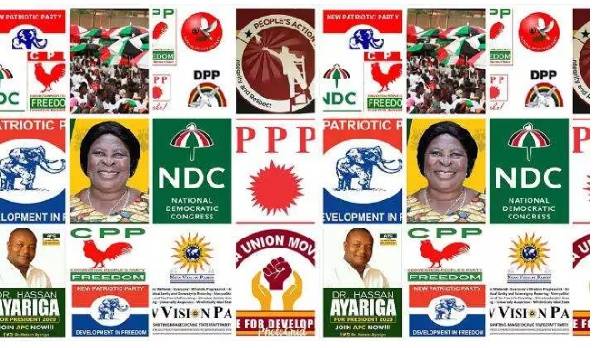Ghana, often celebrated as a beacon of democracy in Africa, is witnessing an unprecedented escalation in political tensions between its major parties. This development threatens the stability and unity that have long defined the country’s political landscape. As the stakes rise, Ghanaians are left to ponder: what lies at the heart of these growing tensions, and what can be done to resolve them?
A Historical Context: Democracy on Trial
Since transitioning to a multi-party democracy in 1992, Ghana has enjoyed relatively peaceful political transitions. The two dominant parties—the New Patriotic Party (NPP) and the National Democratic Congress (NDC)—have alternated in power, each claiming to represent the interests of the people. However, the rivalry has grown increasingly bitter in recent years, turning what was once a healthy competition into a volatile confrontation.
The Flashpoints: Why Are Tensions Rising?
Several factors have contributed to the current climate of hostility:
1. Contentious Elections
The 2020 general elections, though praised for their overall organization, were marred by allegations of electoral fraud and irregularities. The NDC challenged the results, leading to months of legal battles that deepened mistrust between the parties.
2. Economic Struggles
Ghana’s economy has faced significant challenges, including rising inflation, unemployment, and a depreciating currency. Both parties have used these issues as weapons in their blame games, accusing each other of mismanagement.
3. Polarizing Leadership Styles
Leaders of both the NPP and NDC have adopted aggressive rhetoric, often dismissing their opponents as unfit to govern. This combative approach has trickled down to their supporters, fueling divisive narratives across media platforms.
The Human Toll: Ghanaians Caught in the Crossfire
Beyond political party members and leaders, ordinary Ghanaians bear the brunt of these tensions. Businesses suffer from uncertainty, communities grow divided, and young voters feel increasingly disillusioned with the system. As one Accra-based entrepreneur lamented, “Instead of solutions, all we hear are accusations.â€
Finding a Path Forward
To de-escalate tensions, both parties must prioritize national interest over partisan gains. Here are key steps to consider:
1. Promoting Dialogue and Reconciliation
Independent mediators, such as religious leaders or international bodies, could facilitate conversations between party leaders to foster understanding and cooperation.
2. Strengthening Electoral Integrity
Implementing robust reforms to enhance the transparency and accountability of electoral processes can restore public confidence in the system.
3. Encouraging Grassroots Engagement
Creating platforms for citizens to voice their concerns and participate in decision-making can bridge the gap between leaders and the people.
A Call to Action: What Can You Do?
As tensions rise, it’s crucial for Ghanaians to remain vigilant and proactive. Here’s how you can make a difference:
Stay Informed: Follow credible news sources to understand the issues at stake.
Engage in Peaceful Advocacy: Use social media and community platforms to promote unity and demand accountability.
Vote Wisely: Participate in elections to ensure your voice is heard.
What are your thoughts on the current political climate? Share your perspectives in the comments below. Together, we can chart a path toward a more united Ghana.
Visual Aids
Image 1: A crowd of Ghanaians at a peaceful rally, emphasizing unity.
Image 2: A comparative infographic highlighting key differences in NPP and NDC policies.
Image 3: A map of Ghana with regions marked for significant political events.
The story of Ghana’s democracy is still being written. Let’s ensure it remains a tale of hope and resilience.


